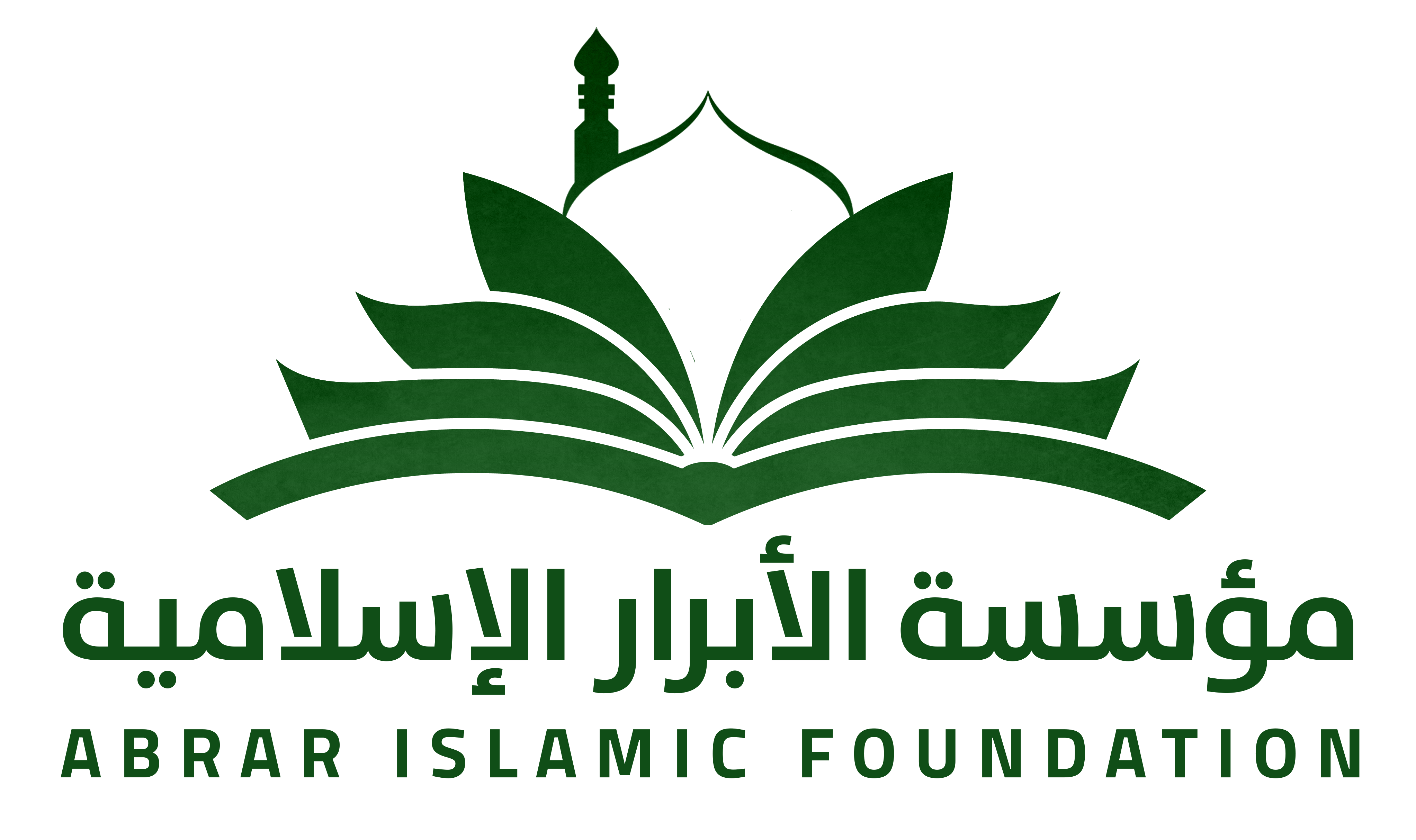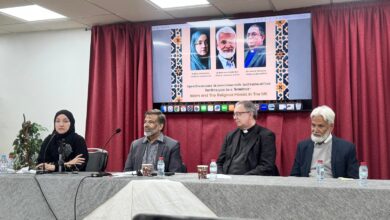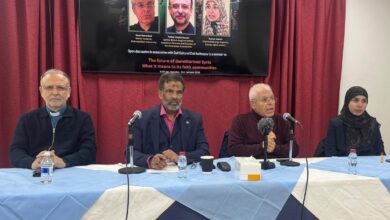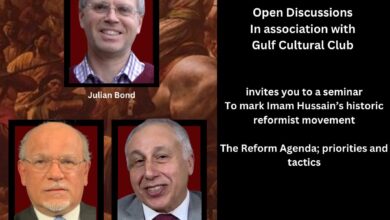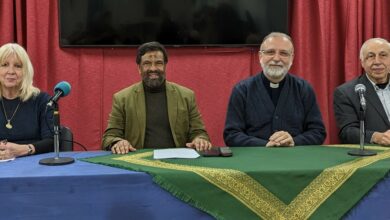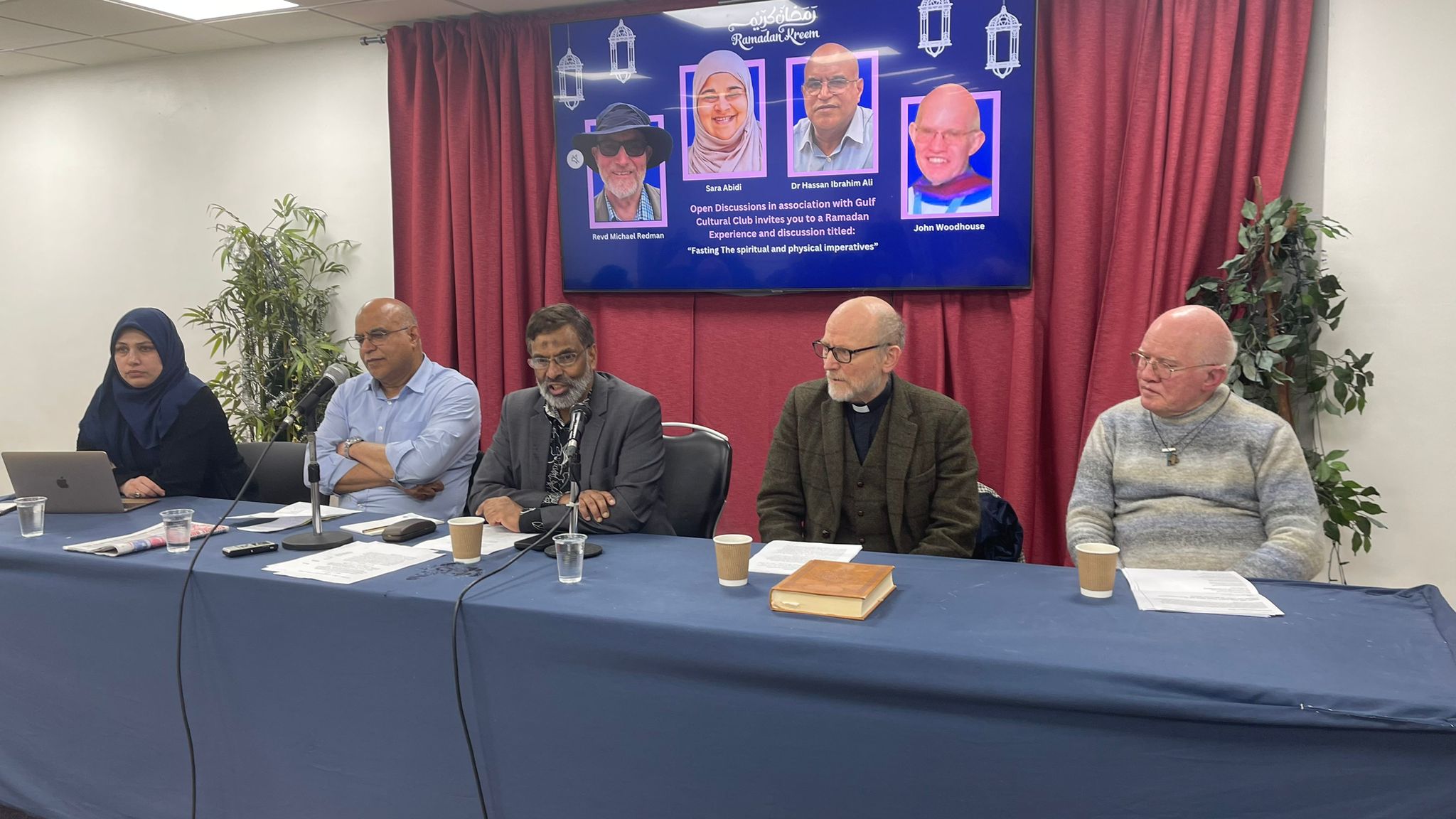
Fasting: The spiritual and physical imperatives
Open Discussions
in association with
Gulf Cultural Club
Fasting: The spiritual and physical imperatives
* Dr Hassan Ibrahim Ali (Psychiatrist Consultant)
**John Woodhouse (Catholic interfaith activist)
***Sara Abidi (Lecturer at the Islamic College)
***Revd Michael Redman (Curate in St Barnabas, Bethnal Green)
Tuesday, 19th March 2024
Refraining from eating or drinking for protracted periods constitutes fasting. In Islam, this is closely regulated and linked to other natural phenomenon such as dawn and sunset. It is a form of worship that human beings are expected to observe for one lunar month each year. It is observed by all Muslims on the planet except the sick, the traveller, and the child. It is part of the moralistic disciplines associated with worship and aims at perfecting mankind.
When Muslims observe fasting in the month of Ramadan they are urged to adopt a strict moral code in behaviour and social commitments as much as their dietary timing is regulated.
Dr Hassan Ibrahim Ali: It was in my mind to speak about diet, intermittent fasting, and fasting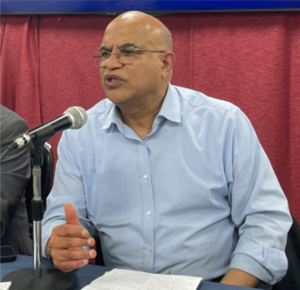 in Islam. I will just restrict myself to the first two and try and be as brief as I can. Basically, when we speak about dieting we are just restricting the number of calories we consume with the aim of getting healthier and for a good number of people with the idea of losing weight.
in Islam. I will just restrict myself to the first two and try and be as brief as I can. Basically, when we speak about dieting we are just restricting the number of calories we consume with the aim of getting healthier and for a good number of people with the idea of losing weight.
The theory behind that is when you restrict diet, particularly carbohydrates you tend to lower glucose. Glucose is the surplus form of energy which is available. And the body like us tends to use the easiest form of energy which is glucose. However, when there is no glucose it tends to utilise other sources of energy like protein and most importantly fat.
Hence if you fast for a long period and glucose decreases the body tends to use other sources of energy like fat and you tend to lose weight. Glucose is usually available from glycogen stored in the liver and in the muscles. That is why athletes after one and a half hours tend to have cramps and they have to use other sources of energy and lactic acid accumulates in their body. A gram of carbohydrate gives four calories, a gram of protein gives again four calories while a gram of fat gives nine calories.
Just to make things simple for you if you eat carbohydrates they stay in the stomach for a short period. Within half an hour almost all the carbohydrates are out of your stomach so after two to three hours you feel hungry. If you compare that with meat, particularly red meat, it tends to stay in the stomach for three to four hours. So if you eat meat even after four or six hours you do not feel hungry. And that is the difference.
There are other forms of diets. The Mediterranean diet makes sense, it is logical, is simple, this is the food of the vast majority of people in southern Europe like Spain, Italy, Greece, and Portugal and it consists mainly of fruits, vegetables, fish and , hefty oils and they don’t tend a lot of refined and processed food.
By the way, the majority of food we consume these days is refined or processed. This is important. It was not the case for 60 or 70 years when there were no animal products and the diet was low carbohydrate.
The ketogenic food is high fat, adequate protein, and low carb. If you have this kind of diet and you continue on it for a reasonable period you can get rid of diabetes. But it doesn’t mean that it is the best thing for you.
There is also the Atkins diet which is not dissimilar to the Keto but with Atkins you start with low carb and then you increase it slowly. Also there is intermittent fasting which is relatively new. Dieting has been there for many many years. When I was a medical student the nurses used to resort to dieting to use weight. That was a good 40 years ago.
Intermittent fasting is relatively new. When I say new it has been there for 10 – 15 years. But I don’t remember it being there before. It has become more popular. By the way, I just picked up this newspaper (Metro) from the tube which mentioned intermittent fasting. There are many ways of intermittent fasting. I will just mention them quickly.
There are the five two. For two days a week, you consume a low amount of calories – about 500 to 600 and the rest of the week you eat what you want. There is the 16 – eight. This is the most popular one. You fast for 16 hours and you eat during the eight-hour window when you can eat whatever you want.
This article here (in the Metro) is a study by a professor from China. It is from a newspaper. Doctors do not rely on newspapers. Surprisingly it says that the study found that the people who follow this kind of dieting tend to die earlier because of heart disease. This is strange and surprising.
There is alternate-day fasting. Basically one day you fast and the other day you don’t fast. And then there is 24-hour fasting. They claim – I would say claim – that all these types of fasting are useful. The most popular one is the `16/8 fasting. There is almost universal agreement that fasting is good for us. Almost all religions, particularly Abrahamic religions promote fasting.
When you search the topic of harm of fasting there is nothing. I did a quick search on Google and on the NHS site. You do not come across anything that mentions harm from fasting. But they mention so many benefits from fasting. I will mention some of them. When you fast you feel physically healthier, and your body becomes more sensitive to insulin, if you have diabetes or are overweight in general your weight tends to come down, and your blood sugar comes down. This is helpful to diabetic and pre-diabetic people.
When you fast there is also agreement that your growth hormones tend to go up and if the growth hormone goes up you tend to have more muscles and less fat. This makes you more healthy. There is also the claim that fasting stimulates cell repair and again – I would just say again as this has not been proven, you do not rely on newspapers – fasting also is good for thinking and memory. But again these remain allegations. They are not proven at all.
One thing that is noticed here is that in all this there is emphasis on the physical side. In Islam, the physical side constitutes only a tiny portion. I don’t think I need to go into details. I will just quote a hadith. The worst container your being fills is the stomach. The hadith goes on to say you don’t need to eat much. You need to eat little to survive. But if you have to eat you should not fill more than one-third of your stomach with food. The other third you should fill with fluids and the last third is for your breathing. Basically, keep it empty.
The problem with most of us is that we lead a sedentary life. We don’t need to eat much. Those who need to eat much are those who do physical and manual work. Those people who are just doing clerical work and sit most of the time need very little food.
I will just end by saying dieting, and fasting is one thing. But there are other things regardless of whether you are overweight, normal weight or weight you need to exercise and you need to lead a relatively healthy way of life. Smoking is harmful. This is proven beyond doubt. Alcohol is harmful. Many people in this country – even elderly people – drink too much. Fasting is good, dieting is good but also things like exercise and a healthy way of living is quite good.
John Woodhouse: It is somewhat awkward for me to talk about fasting as I like many Catholics don’t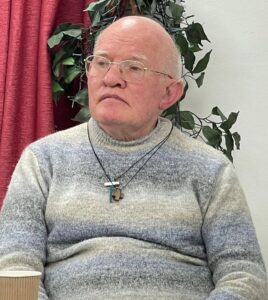 really do it! There is no real comparison with Ramadan in terms of not
really do it! There is no real comparison with Ramadan in terms of not
eating or drinking throughout the day. The only real fast which all Catholics should do is not to eat for an hour before receiving Holy Communion at mass.
Where does the idea of fasting during Lent come from? In the Gospel of Luke 4
verse 2 we read: Jesus for forty days was being put to the test by the devil. During that time he ate nothing and at the end he was hungry. There is a clear parallel with Moses fasting for 40 days and nights on Mount Sinai and throughout the Old Testament you will find examples of fasting including kings requiring everyone to fast in repentance.
Many Christians sing the hymn during Lent Forty days and forty nights thou was fasting in the wild, Shall we not thy sorrows share and from earthly joys abstain, fasting with unceasing prayer. Prayer is at the centre of Lent. In the Catholic Church, fasting is a practice in self-discipline with a penitential focus. In the context of Lent, it refers to reducing food intake and limiting how many meals we have. What are the Lent fasting rules? On Ash Wednesday and Good Friday, fasting rules allow Catholics to eat only one full meal and two smaller meals which, combined, would not equal a single normal meal. Additionally, Catholics may not eat meat on these two days–or on any Friday during Lent.
FREQUENTLY ASKED QUESTIONS:
What are the Lent rules on abstinence? In this context, abstinence refers to “abstaining” from meat on Fridays during Lent. Whereas Catholics fast on Ash Wednesday and Good Friday with just one large meal, Catholics must refrain from eating meat on other Fridays, though they can have three full meals.
At what age do you start fasting for Lent? Those aged 18-59, in reasonable health, are required to fast on Ash Wednesday and Good Friday. Those 14 and older must abstain from meat on Fridays during Lent. Canon Law does mention that for young children not fasting, parents should still communicate the meaning and penance.
Who is exempt from fasting during Lent? Children, adults with physical and mental illness, pregnant women, and those nursing are all exempt. The United States Conference of Catholic Bishops stresses that “common sense should prevail” and that no one should jeopardize their health too fast.
The Eastern Orthodox church has a much stricter attitude to fasting. In Orthodoxy, there are 4 fasts: Nativity 40 days, Great Lent 40 days plus Holy Week, the Apostles Fast, and the Dormition Fast 40 days. There is additional fasting every Wednesday and Friday plus on other feast days.
Orthodox Christians don’t eat anything before receiving the Eucharist. Orthodox fasting is vegan. No animal products (meat, fish, eggs, dairy) wine, or olive oil. Shellfish is allowed. When we eat less, savings can be donated to the poor.
The Laudato Si animators are people, mainly Catholics, who have been trained by the Vatican-backed Laudato Si movement to inform and inspire others to engage in dialogue and action on current environmental issues. An article was prepared about what animators do during Lent.
In my congregation Virginia says given the massive over-consumption that the world is drowning under my favourite option is to buy nothing at all that isn’t essential. John joins an ecumenical Lent group and reads daily spiritual writings. He also gives up alcohol which is good for his weight! But the best thing would be to do practical action and outreach, such as helping refugees.
Susan believes that Lent is a good time to examine our lifestyles and change our hearts so that love for God’s creation is expanded. Especially, she says, to consider how ethical the products we buy are.
Stephen says giving up our precious time for others can be penitential, but so often brings unexpected spiritual benefits. Giving up chocolate may not be a good idea if it makes you grouchy!
Sean prefers resolutions to be realistic using the SMART technique specific, measurable, accurate, realistic, time-related. One surprise from the survey is that no one seems keen on fasting. But it can have positive health benefits!
Rev Michael Redman: My old headmaster smoked like a chimney. He used to tell us not to smoke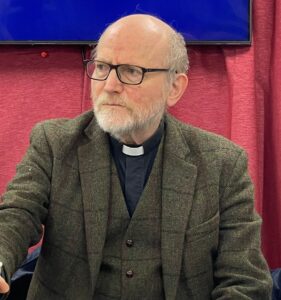 and indeed we would be punished if we were caught doing so. He used to say, ‘Do as I say – don’t do what I do.’
and indeed we would be punished if we were caught doing so. He used to say, ‘Do as I say – don’t do what I do.’
When we come to fasting, I do not claim any expertise. Indeed, I am probably the last person who should be giving this lecture as I don’t really give up food and only sometimes do I give up drink. So, don’t do what I do! But I have been invited here. As I live around the corner and have always wanted to see inside this building and get to know you, I wasn’t going to turn down this invitation.
I come here with some humility. I was a solicitor up to twelve years ago. I was always struck by the efforts made by the Muslims in the office during Ramadhan. It must have been difficult in an air-conditioned office which dehydrates you at the best of times. But even those who might have had an occasional beer during the rest of the year took fasting in Ramadhan seriously. What impressed me was the mutual support. Each supported the other to get through the day without food and drink. In the summer months, this was particularly onerous with long hot days.
So, what impressed me was the solidarity between the devout and the not-so-devout. Everyone chipped in. This was not so much an individual exercise but a communal effort in solidarity with each other.
Not surprisingly, Christians seeing Ramadhan being observed at close quarters have re-examined fasting and, in particular, Lent – the forty days before Easter which act as a similar way to Ramadhan – to get our spiritual batteries recharged.
Muslims, of course, have the five pillars of Islam: shahada, salat, zakat, sawm, and hajj. All these are somewhat mirrored in Christianity but in different forms. We have
- our creeds mirroring shahada,
- prayers mirroring salat,
- almsgiving mirroring zakat,
- fasting mirroring sawm and
- pilgrimages mirroring hajj.
Pilgrimage tends to be a metaphor for the spiritual life although some do engage in pilgrimages. Recitation of the creed is not given the same importance as shahada.
So, we are left with prayer, fasting, and almsgiving. These three tend to be taken together – perhaps the three pillars of Christianity although the fasting one would be a bit shaky in the West.
So, what I intend to do tonight is to look at what our scripture says about fasting and then look at the practice – or should I say lack of practice? – by Christians today.
Our scriptures say that we do not become holy through carrying out these acts. Indeed, if we carry them out with the wrong intention, we are probably in a worse spiritual space than if we had not bothered in the first place. The reason is that God’s grace is not dependent on what we do. We do not earn God’s favour by our own efforts. But there is a corollary to this: we might put ourselves in the position of being able to receive God’s grace by making ourselves open and receptive. So, there is some ambivalence to fasting, prayer and almsgiving. Is what we are doing for show or for genuine intentions.
Let me give an example. A friend and I were walking to dinner. We passed someone selling the Big Issue and I bought a copy. Was I buying it to impress my friend or to help the seller out? –I did so to impress so no brownie points for me! My friend’s reaction was interesting, ‘I didn’t know you could buy the magazine!’ – but that’s another story.
The first scripture I want to read is from the Book of Isaiah which is in the Hebrew Bible, the Bible of the Jews which Christians have inherited. The Qur’an mentions the Torah which comprises a third of that Bible. This piece is not from the Torah but from what Jews call the Nevi’im – the Prophets, another third of the Hebrew Bible. The Book of Isaiah comprises collections of prophecies – not always about the future but the state of the society. The prophet, Isaiah, says this about a physical fast being carried on when there is no justice or social concern from the wealthy.
Is not this the fast that I choose:
to loose the bonds of injustice,
to undo the straps of the yoke,
to let the oppressed go free,
and to break every yoke?
7 Is it not to share your bread with the hungry
and bring the homeless poor into your house;
when you see the naked, to cover them
and not to hide yourself from your own kin?
8 Then your light shall break forth like the dawn,
and your healing shall spring up quickly;
your vindicator shall go before you;
the glory of the Lord shall be your rear guard.
9 Then you shall call, and the Lord will answer;
you shall cry for help, and he will say, “Here I am.”[1]
I am sure this will resonate with you. It is no good carrying out strenuous physical fasts if you ignore the demands of the poor, the weak and the oppressed. It is much more important to create a just society than for a rich man meticulously to observe a fast in the midst of extreme poverty and desolation. The fast pleasing to God is an ethical one addressing the unequal society in which we live. What the prophet, Isaiah, may be saying is no sawm without zakat.
The next text is from the Gospel according to Matthew. Now the Qur’an mentions the injil, the Gospel. But you will find if you look at the New Testament that there are four versions of the one injil, each giving an account of Jesus’ life, death, and resurrection. In this respect, you might think of the numerous biographies of the Prophet Muhammad, peace be upon him. No one biography can capture all his life – we need them all to obtain a truthful picture.
Matthew in his gospel records Jesus, Isa, teaching on a mountain – it is known as the Sermon on the Mount. This is what Isa says:
[Beware of practicing your righteousness before others in order to be seen by them, for then you have no reward from your Father in heaven.So whenever you give alms, do not sound a trumpet before you, as the hypocrites do in the synagogues and in the streets, so that they may be praised by others. Truly I tell you, they have received their reward. But when you give alms, do not let your left hand know what your right hand is doing, so that your alms may be done in secret, and your Father who sees in secret will reward you.
“And whenever you pray, do not be like the hypocrites, for they love to stand and pray in the synagogues and at the street corners, so that they may be seen by others. Truly I tell you, they have received their reward. But whenever you pray, go into your room and shut the door and pray to your Father who is in secret, and your Father who sees in secret will reward you.]
“And whenever you fast, do not look somber, like the hypocrites, for they mark their faces to show others that they are fasting. Truly I tell you, they have received their reward. But when you fast, put oil on your head and wash your face, so that your fasting may be seen not by others but by your Father who is in secret, and your Father who sees in secret will reward you.”[2]
So, Isa tells us that fasting, alms giving and prayer must not be for acts of show – not like me buying the Big Issue to impress my friend but is between me and God. If I do these things for show I will get no benefit. I will only be rewarded if I act secretly.
So, for Christians, fasting, alms giving, and prayer are probably more individualist than they are for Muslims. The corollary is of course by making such conduct voluntary, people don’t bother or don’t make such an effort.
Before we leave the scripture, there is one more text I would like to read:
Then the disciples of John came to him, saying, “Why do we and the Pharisees fast often, but your disciples do not fast?” And Jesus said to them, “The wedding attendants cannot mourn as long as the bridegroom is with them, can they? The days will come when the bridegroom is taken away from them, and then they will fast.
Here we see a certain ambivalence to fasting. While celebrating the presence of Christ among us, there is no need to fast. But when Christ has been taken away, then we should fast.
So, I would now like to turn my attention from scripture to practice. We have the period of Lent during which Christians have fasted for centuries. Pancake Day on Shrove Tuesday – the day before Lent – starts reminds us that Lent is around the corner. On that day, milk and eggs were eaten up as they weren’t allowed in Lent. It is salutary for me as a member of the Church of England to find that there are 120 days designated for fasting or abstinence in the Prayer Book of 1662 which still is used. But I doubt if anyone in the Church of England would fast on all those days.
The rather lax practice of fasting in Western Christianity may be contrasted with our brothers and sisters in the East.
The Coptic Church takes fasting seriously even today. There are 210 fasting days a year. Fasting is one of the major pillars of the Coptic Orthodox church in Egypt. While some fasts are longer than others, Coptic fasting, in nature, ranges from intermittent fasting, a vegan diet, and a vegan fast with seafood allowed. Of the fast days, 43 days of the Nativity Fast, another name for Advent, corresponding to the 40 days that Prophet Moses fasted before receiving the Ten Commandments from God. 55 days of fasting are set aside for the period before Easter. This fast involves more than just a change of diet — rather, it is a time of spirituality and repentance. As the Coptic Pope Shenouda II said:
Make sure that fasting has changed anything in you. Consider how much you have fasted and you’re still the same![3]
So, I want to come back to Lent. With the backdrop of Ramadhan, Christians in the west are beginning to take Lent more seriously. Conducted properly, it can be a time of change, of transformation as Pope Shenouda says. It can also be a time of spirituality and repentance.
In the past, Lent was a time of giving things up. Children were encouraged to give up chocolate. For some years, I gave up alcohol. I stopped because I don’t drink much alcohol during the year in any event – and Lent coincides with the Six Nations rugby festival.
But Lent is a time to look at our lifestyle and diet. Unlike most Christians, I am vegetarian – I don’t like the idea of eating meat, although I occasionally have some fish. We share the planet with animals and fish. As the Qur’an says, we are stewards, Kaliphah, to look after creation. Is it right for us as spiritual people to kill those creatures who share the earth with us – especially today when we have modern factory farming which does not give animals the chance to lead happy lives during their time on earth.
Then as spiritual people, we should think about using up the world’s resources and our contribution to climate warming. Do we need to run a car? Can we rely on public transport? Do we use aeroplanes? We can observe all the fasting rules but if we are playing our part in contributing to global warming, what have we learnt by fasting. If the Prophet Isaiah was speaking today, he would have something to say about a society observing fast days but at the same time, destroying the planet.
The Qur’an says that:
‘there are no animals that walk upon the Earth, nor any bird that flies with its two wings, but that they are nations like ourselves.’ [4]
There will be people here much more able to interpret this ayah. But it strikes me as a warning that as part of our fast, we should look after the animal world as its habitat. The animals are nations like our own countries. We should not be declaring war on them. On the contrary, we should be entering into treaties to respect them. That would be a good fast for all our faiths to get behind.
Sara Abidi: Among all the places God Almighty says: the mosques are lil-Lah Subhana wa Ta’ala.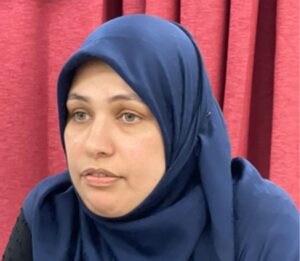 “Anna al-masajid lil-Lah” (72:18) i.e., they are houses of Allah. And among all the mosques, Masjid al-Haram is a special house of God almighty. Similarly, among all the months, the month of Ramadan is the month that God almighty attributes to Himself, and, He has put His name on this month, because Ramadan is the name of God almighty. This is why we are told never to say Ramadan, always say Shahr Ramadan because of its sanctity.
“Anna al-masajid lil-Lah” (72:18) i.e., they are houses of Allah. And among all the mosques, Masjid al-Haram is a special house of God almighty. Similarly, among all the months, the month of Ramadan is the month that God almighty attributes to Himself, and, He has put His name on this month, because Ramadan is the name of God almighty. This is why we are told never to say Ramadan, always say Shahr Ramadan because of its sanctity.
In this month there is a night of Degree and the minimum reward of worship in this night is 1000 months, which is some 80 years. Imagine, in one night, you can achieve what you can achieve in your entire life. The number shows the infinite reward. The greatest of this month can measured through a narration of the Holy Prophet (peace and blessing be upon his holy progeny);
“The scrolls of Ibrahim descended on the first night of the month of Ramadhan while the Tawrat Bible was revealed when six days had elapsed of the month of Ramadhan. The Injil Gospel was revealed when thirteen nights had elapsed during the month of Ramadhan while Zabur Psalms of David was revealed when eighteen days had elapsed during the month of Ramadhan, and the Quran was revealed on the twenty-third of the month of Ramadhan (Ref, al-Kafi, vol.2 p.629, hadith number 6). The Prophet of Islam also said, ‘It (the month of Ramadhan) was named ‘Ramadhan’ because it burns and scorches away sins.’ (Ref. Ahmad ibn Hanbal, Musnad, vol.4,p.110, hadith number 11,524)
In the Islamic belief system, the spiritual journey after the death of the person is eternal, and we all need provision to make that journey fruitful and blessed, as it is said in another narration by Imam Jafar al Sadiq (the sixth holy Imam), the night of degree that is present in this month (in the last alternative nights, especially in the 23rd night of the holy month) gives a person hope to achieve enough provision in the journey towards God al Mighty.
There are many healing benefits of fasting including:
Physical healing: The three fathers of Western Medicine; Hippocrates (d. 460), Galen (d. 216) & Paracelsus (d. 1541) prescribed fasting as the greatest remedy and the physician within. Dr Otto Buchinger; Germany’s great fasting therapist after more than 100,000 fasting cures says: “Fasting is, without doubt, the most effective biological method of treatment. it is an operation without surgery. It is a cure involving exudation, redirection, loosening up, and purified relaxation.” Dr Joel Fuhrman in Fasting and Eating for Health notes: “Fasting has been repeatedly observed to alleviate neuroses, anxiety, and depression.
Social Healing: With fasting one is able to understand the pain of other human being, people living in deprived conditions throughout the world with very less or no basic needs. Such as the verse in the Holy Quran says,
“Truly! Allah wrongs not mankind in aught; but mankind wrong themselves.” (10:44)
Spiritual healing “O you who believe! Fasting is prescribed to you as it was prescribed to those before you that you may gain self-restraint.” (2:183) It is quoted from Prophet Jesus to have said in the Dead Sea Scrolls found in 1947: “Renew yourselves and fast, for I tell you truly, except you fast, you shall never be freed from the power of Satan, and from all disease that come from Satan.” This is the most important benefit of all the benefits and I want to further analysis as below.
Gradation in fasting
1. Fasting of ordinary people
Fasting for many Muslims is mainly to refrain from what they must jurisprudentially refrain from such as eating, drinking, sexual intercourse etc. Although this is the lowest and the least level of religious fasting, once it is offered for the sake of God, the faster is religiously considered fasting. To give you an idea of how low the level of this stage is, for instance, a Muslim girl may fast without practicing her Islamic dress code at work and her fasting is valid on this level or a Muslim boy may observe fasting and yet listens to rock and roll and his fasting is jurisprudentially valid.
2. Fasting of the elite
Such noble fasters let their eyes, ears, and all other body parts fast against whatever which is regarded in religion as prohibited. Gossiping is always prohibited, but for them, it is more prohibited during the fasting period. Non-Islamic dress is always prohibited but for them is an essence during Ramadhan. This is called the fasting of the elite. Imam al-Sadiq (peace be upon him) is quoted from his ancestors from the Prophet of Islam (peace be upon him).
“When you fast, let your ears, your eyes, your hair, your skin and all your body fast too. Do not let your fasting day be the same as non-fasting ones.” (Bihar al-Anwar vol.96, p 292)
- The fasting of the elite of the elite
A narration about the reward of fasting, “I will reward all rituals of mankind from ten times to seven hundred times save Patience, for it is for Me and I am its reward, and Patience is fasting.” (Bihar al- Anwar vol,96, p.252)
The elite of the elite fast with their hearts from lowly concerns and worldly thoughts, and they abstain from everything other than God. The prophets, the truthful ones and those near to God almighty are at this level. Their hearts are submissive to God all the time and in His remembrance. At the time of breaking the fast, they eat only in moderation because the whole purpose of fasting is for the stomach to be hollowed, the whimsical desires broken and the soul fortified with God-consciousness.
Therefore, fasting eradicates the caprice of the soul and natural desires resulting in humbling the heart and limbs are purified. It inspired inner and outer devotion, gratitude for all the blessings one has, kindness to the needy and increase in humility. It gives remembrance to the accountability in the hereafter and multiplies good deeds.
The meeting end with the recitation of a poem by the Chairman Syed Shabbir Jafer Razvi
Month of Reflection
In this city of extreme distraction
No moment to reflect in London
Routine is much of our day
It is rare to stop and be at bay
Think what we do and why?
We just do it to make hey
Good may sometime come
Oft it leaves us numb
Many a times we miss a chance
And pass by beauty as dunce
This mindless haste of our time
Habits we follow no space for sublime
A month of blessings in abundance
Ramadhan the chosen month of opulence
The Fountainhead of Blessing
Made this month for assessing
To stop, contemplate and reflect
So that we can reduce our defect
With the dawn of Ramadhan
Mercy and blessings rain
All organs of perception and sensation
Need to experience fast of salvation
During this month devils are chained
Cleansing journey of purification is gained
Stop eating or drinking is only the beginning
More disciplines are part of winning
The determination of fasting
Is to make the change lasting
Just to avoid material intake is wasted
To make the effort of fasting not jaded
Fasting ethics is to change behaviour
To regulate the self to be its saviour
Not to use the tongue for abuse
Lies, backbiting or slander may seduce
Protruding eye must refrain
From immoral and unethical domain
Joy of fasting is not just a detox
Spiritual cleansing is its equinox
Open our heart to the Almighty
And experience total beauty
Syed Shabbir Jafer Razvi London 7th August 2011
*Dr Hassan Ibrahim Ali is a Psychiatrist Consultant with the NHS. He was born in Bahrain where he completed his primary and secondary education. He then studied at the Medical School in Basra, Iraq. He moved to the UK where he worked as a doctor before specializing in psychiatry. He lectures and comments on religious and ethical issues, delivering lectures and participating in debates.**John Woodhouse is a Roman Catholic who organises the Westminster cathedral interfaith group and is the co-ordinator of Laudato Si’ animators UK. John is an organist and choirmaster at St John the Evangelist, Caterham Valley. He has been married to Liz for 47 years (they met in the Philharmonic chorus) and they have 3 children and 3 grandsons. He paints in oils, enjoys swimming, opera and the proms and is a retired librarian.
***Sara Abidi is a Lecturer at the Islamic College, London. She is also a Research Assistant at the College. She holds a Bachelor of Arts degree, Master of Science and Master of Arts degree. She is a PhD candidate in Islamic studies.
****The Revd. Michael Redman is the curate in St Barnabas, Bethnal Green in the Diocese of London and the Church of England representative on the Tower Hamlets interfaith forum. He was previously curate in St Paul’s Church, North Marylebone and was at one time interfaith adviser in the Westminster and City of London areas. He studied (alongside John Woodhouse!) interfaith relations in Heythrop College and later Buddhism and Jainism at SOAS. He has produced you tube videos on how Christians can learn from other faiths. He is a member of the World Congress of Faiths and has contributed to its journal, Interreligious Insight.
[1] Isaiah 58.6-9
[2] Matt. 6.1-6, 16-18
[3] https://egyptianstreets.com/2023/02/16/how-many-days-do-coptic-orthodox-christians-fast/
[4] Surat 6.38
